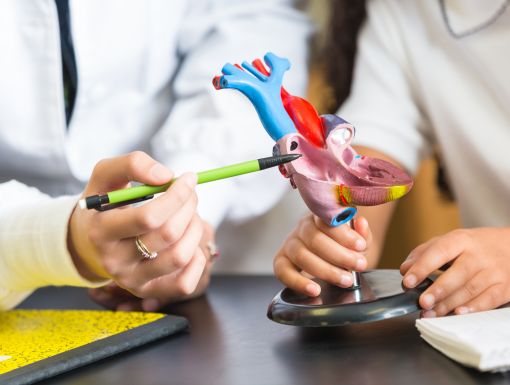
Everything to Know About the Pediatric Cath Lab in 2026
According to the Centers for Disease Control and Prevention, every year 40,000 babies are born with congenital heart defects. Depending on the severity of the defect, doctors can repair some conditions through diagnostic and interventional cardiac procedures, including structural heart repairs performed in a catheterization, or cath, lab. These minimally invasive procedures are done without opening a patient’s chest. Instead, a cardiologist accesses the heart by inserting a thin plastic tube called a catheter into a patient’s blood vessels in the leg or neck.
Ochsner Health has a pediatric interventional cath lab at its campus at Ochsner Medical Center – New Orleans, which further enhances Ochsner’s capabilities to provide high quality care for heart patients of all ages.
Here are some common questions that parents have about a pediatric cath lab:
How is a pediatric cath lab different than a cath lab for adult patients?
A pediatric cath lab features a special dose tracking system to reduce radiation exposure to pediatric patients along with a Cannon Alphenix Biplane, which is an imaging apparatus that has two cameras that rotate at the same time. This allows doctors to view smaller hearts easier. Additionally, patients can watch cartoons and other kid-friendly videos on a monitor while being prepped in the room for procedures.
What are the common conditions treated in the pediatrics cath lab?
Three of the most common conditions treated in a pediatric cath lab are:
- Atrial Septal Defect (ASD): A condition in which there is a hole between the top two chambers of the heart.
- Patency of the Ductus Arteriosus (PDA): A condition where a blood vessel (known as a ductus arteriosus) that naturally closes after birth fails to close and too much blood is directed toward a baby's lungs.
- Valve Stenosis: A condition where the valve is too narrow and physicians perform a procedure (called a Valvuloplasty) in which a small balloon is inflated to stretch the valve in the patient’s heart, helping it to open properly.
Will my child be under general anesthesia or be sedated for a procedure in the cath lab? What is that experience like for a child?
Most young children do go under general anesthesia for the procedure, while teenagers tend to be awake, so anesthesia depends on the age of the patient. Once the procedure is done, the anesthesia will wear off and the child will gradually wake up in the recovery unit with their parents alongside them. The cath lab has a dedicated pediatric heart anesthesia team who can provide an extra layer of comfort for our youngest patients and their families.
Do you have any advice for how parents can explain to kids who might be older what to expect in a pediatric cath lab?
Explaining in advance that the procedures are minimally invasive can help calm fears. Ochsner Children's team of Child Life Specialists spends time walking parents and patients through the procedure and what to expect. The team uses a lot of visuals to make sure the parents and kids understand what is happening in a way that they understand to help the overall experience feel less scary.
After the procedure, when can the patient go home or return to normal activities?
For most procedures, patients can return to normal activities the very next day.
The congenital cardiovascular team at Ochsner Children's is made up of more than 20 congenital cardiologists, interventional congenital cardiologists and congenital heart surgeons. The team works closely with the John Ochsner Heart and Vascular Institute (JOHVI) to ensure coordination of care for patients of all ages with congenital heart disease, from the tiniest of babies to adults.



